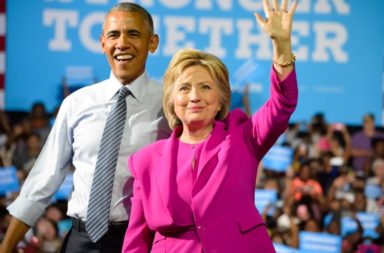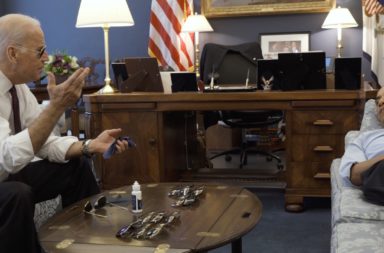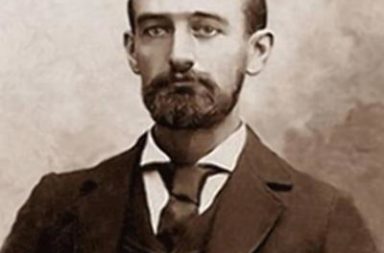Who is this John Kasich, and why is he still in the GOP presidential race against Trump?
- The Republican governor of the politically important state of Ohio is waging a mathematically impossible campaign for the Republican nomination
- He’s betting on a contested convention to crown himself the winner
- He should probably keep dreaming
This is a question many Americans are asking themselves. They certainly know who Donald Trump is; they’ve seen the name Ted Cruz enough to know that he’s succeeding at something, but John Kasich still maintains the allure of the unknown, an exoticism that people from Ohio rarely get to enjoy (trust me). Aside from the fact that he’s less of a verbal bomb thrower than the other two, this fact likely helps explain why he’s viewed so much more favorably in some polls.
So here’s the lowdown on the folksy but ornery, two-term governor of Ohio – and why he’s still running for president despite the fact that the only way he can represent his party in November is essentially by calling a do-over after months of primary contests in which voters essentially declared, “Nah, we don’t really want this guy.”
His Past
John Kasich is a golden-boy political prodigy who, at 26, became the youngest person to ever win a state senate seat in Ohio. His restless ambitions took him to Washington, D.C., just four years later, in 1982, as a congressional representative for Ohio’s 12th District. He stuck around long enough to enjoy the 1990s Republican revolution that would bring him a measure of national prominence as chairman of the important House Budget Committee. He even disastrously ran for president in 2000 before spending basically a decade as a Fox News talking head and a managing director for Lehman Brothers – yes, that Lehman Brothers.
He got back into politics in 2010, winning the job of governor in Ohio amid frenzied backlash against anything that smelled like a Democrat. While there he has adopted traditional Republican positions in hopes of reviving the state’s economy: massively cutting income taxes; slashing public spending, particularly for education; refusing federal money for rail connectivity between the state’s major cities; and trying, unsuccessfully, to cripple labor unions.
The idea that he’s a sensible centrist stems from his flashes of independence from Republican orthodoxy and the fact that he says things like, “Sure, I’ve been to a gay wedding and I wouldn’t disown my children if they were gay,” or “Let’s do more for the poor.” He’s also massively expanded health care for the poor, reformed criminal sentencing that is often viewed as unjust in America, commuted death sentences, and expanded some tax credits for low-income people. He easily won re-election in 2014 against a Democrat who was basically accused of cheating on his wife and questioned about the weirdness of living without a driver’s license in a state like Ohio. His claim to be the next president rests on his extensive experience, the fact that he’s the only one in the room who isn’t crazy, and the “economic miracle” he produced in Ohio, which is debatable in that it’s a debate he would probably lose.
His Spoiler Status in the 2016 Hunt
Improbably, John Kasich has now outlasted 14 other Republican candidates, despite winning just one state – the one where he holds the highest elected office. His best finish aside from Ohio has been in New Hampshire, where he came in a distant second despite essentially living there for months before the state voted. His March 15 win in Ohio, the greatest political bellwether in America, has generated no real momentum. In fact, he came behind even Marco Rubio in the recent Arizona vote – a man who is no longer in the race.
At 143 delegates, it is mathematically impossible at this point for him to get to the 1,237 needed to win the nomination outright. The way the presidential process works in America is like this: political parties select delegates for conventions that crown their nominee, and they award those delegates based on who won the primary in each state. Those delegates generally have to vote for candidates based on who actually won their state. But if no one has reached that magic number of 1,237 in what is called the first ballot of the convention, delegates are freed from their commitments and can vote however they please, unleashing chaos. John Kasich is betting on Donald Trump not getting to 1,237 and convincing the delegates in July that he is the most electable candidate for Republicans because he isn’t crazy. John Kasich openly admits his strategy is essentially peeling off enough delegates to deny Trump and circumventing the primaries to take the nomination in the above-mentioned “brokered convention” scenario.
He’s right that current public polling indicates he’s a lot more likeable than Trump or Cruz and best positioned to defeat the likely Democratic nominee, Hillary Clinton. The problem for Kasich is that no one is listening, and if there’s really going to be a coup d’état, he won’t be the beneficiary.
Granted, these delegates are “establishment types” (party regulars, donors, public officials) who would ostensibly favor Kasich over the reprehensible Cruz or the dear-God-no Trump, but if there’s really going to be a dark horse, which is itself unlikely, Kasich isn’t the favorite son. The party is far more likely to realize that Cruz, in a situation where he’s not too distant from Trump, could at least help them avoid a huge rupture in the Republican ranks by downgrading the coup to a nicer-sounding power grab rather than a total denial of popular will, and “at least he’s a conservative.” Even Mitt Romney thinks so. If the delegates decide to ignore the voters in their states, they’re more likely to turn to a steadier hand like House Speaker Paul Ryan, who with zero delegates isn’t all that far from Kasich anyway and has a whole lot more love.




